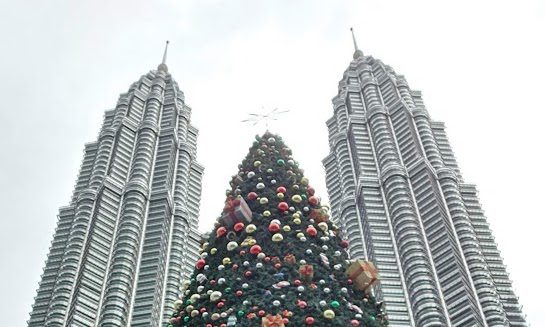By Rajvant Kaur and Boo Kok Chuon
The recent legal dispute involving 100 Singaporeans and their investments in 99-year Private Lease Scheme (PLS) properties in Johor Bahru has shed light on the complexities of cross-border property transactions. Many buyers were attracted by the promise of affordable luxury living close to Singapore, only to find themselves entangled in disputes over unclear lease terms, renewal conditions, and limited legal protections.
At the heart of this issue is the Private Lease Scheme (PLS), a model where buyers lease property for a specified period, typically 99 years, without transferring ownership of the title. This is a sharp contrast to Singapore’s property market, where long leases exceeding seven years must be registered under Section 87 of the Land Titles Act 1993 (Cap. 157) (“Land Titles Act”), ensuring legal protection and enforceability.
This case serves as a cautionary tale for Singaporeans about the risks of investing in overseas properties that lack statutory safeguards.
What is the Private Lease Scheme (PLS)?
The Private Lease Scheme (PLS) is a contractual arrangement used in Malaysia, granting buyers the right to use a property for a fixed term—often 99 years—without transferring the title to the buyer.
Key features include:
- No Ownership Transfer: Buyers lease the property but do not gain ownership of the title.
- Developer Retains Control: The developer keeps the property title, maintaining significant influence over the lease terms.
- Unclear Renewal Terms: Terms for extending the lease after 99 years are often vague or left to the discretion of the developer.
Although PLS properties may be marketed as affordable alternatives to freehold or leasehold properties, their lack of statutory protections poses significant risks to buyers.
Why PLS is Not Present in Singapore
In Singapore, property laws provide robust protections for lessees, ensuring clarity and enforceability in long-term lease agreements. Such protections are missing from Malaysia’s PLS model.
1. Registration Under Section 87 of the Land Titles Act
Singapore requires leases exceeding seven years to be registered under Section 87 of the Land Titles Act. This ensures that long-term leases are legally recognised and enforceable against third parties.
By contrast, Malaysia’s PLS leases operate purely as private contractual agreements, without statutory recognition or registration, leaving buyers vulnerable to disputes and unenforceable terms.
2. Clear Protections for 99-Year Leases
In Singapore, 99-year leases—such as those for HDB flats—are governed by clear legal frameworks under the Land Titles Act and the State Lands Act 1920 (Cap. 314). These frameworks protect lessees’ rights, offering clarity on renewal terms, transferability, and dispute resolution.
3. Transparency and Accountability
Singapore’s property market is tightly regulated, ensuring transparency and accountability in transactions. Developers and landlords are subject to strict rules, providing buyers with confidence in their investments.
Comparing PLS and 99-Year Leases in Singapore
| Feature | Private Lease Scheme (PLS) | 99-Year Lease in Singapore |
|---|---|---|
| Ownership | Buyer leases property but does not own the title. | Buyer leases with clear, enforceable rights. |
| Registration | Not registered under statutory land laws in Malaysia. | Must be registered under Section 87 of the Land Titles Act for leases exceeding 7 years. |
| Legal Protections | Governed by private contracts; limited statutory recourse. | Statutory protections under Singapore law. |
| Lease Term | Typically 99 years, with renewal terms unclear. | 99 years, with regulated renewal terms. |
| Resale/Transferability | Restricted and subject to developer’s approval. | Freely transferable, subject to regulatory rules. |
| Dispute Resolution | Limited legal recourse due to lack of statutory backing. | Strong legal recourse under established laws. |
Lessons for Singaporean Investors
The stark differences between PLS and Singapore’s regulated property market highlight the importance of due diligence when investing abroad. Key takeaways include:
- Understand the Risks: PLS properties lack statutory protections, leaving buyers reliant on developers’ goodwill.
- Seek Legal Advice: Engage a lawyer familiar with cross-border property laws to review agreements and assess risks.
- Conduct Developer Due Diligence: Research the developer’s track record to ensure they are reputable and reliable.
- Evaluate the Long-Term Impact: Consider the property’s resale potential, renewal terms, and enforceability of rights before committing.
How Omnia Law Chambers Can Assist
At Omnia Law Chambers LLC, we specialise in helping Singaporeans navigate the complexities of cross-border property transactions. Whether you are considering a PLS investment or facing disputes, we offer:
- Contract Review and Risk Assessment: Ensuring your interests are protected.
- Due Diligence Services: Investigating developers and lease terms for potential risks.
- Dispute Resolution Support: Representing clients in legal disputes involving foreign properties.
Conclusion
The Private Lease Scheme (PLS) may seem appealing for its affordability, but its lack of statutory protections and reliance on developer goodwill make it a risky choice for Singaporeans. By understanding the differences between PLS and Singapore’s regulated lease systems, you can make informed decisions and safeguard your investments.
For expert legal guidance on cross-border property transactions, contact Omnia Law Chambers LLC today. Let us help you secure a safe and reliable investment journey.

